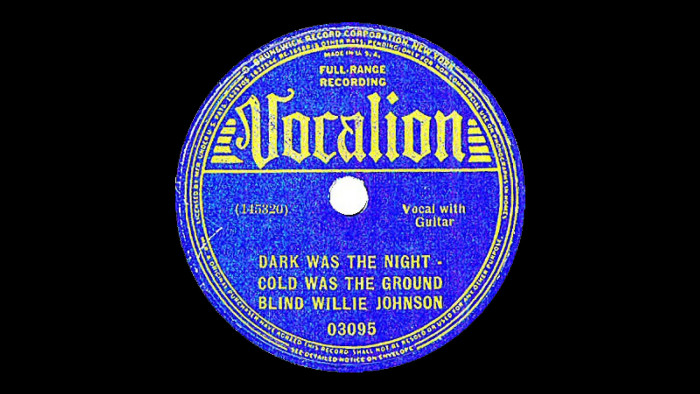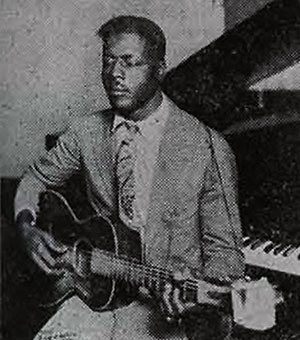The Life of a Song: ‘Dark Was the Night, Cold Was the Ground’

Simply sign up to the Life & Arts myFT Digest -- delivered directly to your inbox.
This week’s song is currently hurtling through space at about 37,000mph, having travelled more than 13bn miles in 38 years. After flying past Jupiter and Saturn, in 2012 it became the first man-made object to reach interstellar space (although according to some scientists it is still in the solar system, as it has yet to pass through the Oort Cloud, which will take another 14,000-28,000 years).
When the Voyager 1 probe was launched on September 5 1977, a gold-plated 12-inch phonograph disc was attached to it, encoded with messages from humanity, greetings in 55 languages, animal calls, tribal songs and music, as well as encrypted photographs, for the benefit of any civilisations that might eventually encounter the craft. Helpfully, a stylus and diagrammatic instructions were included to assist with playback.
Among those on the committee who chose the music for the disc was the cosmologist, astrophysicist and populariser of all things astronomical Carl Sagan (whose landmark 1980 TV series Cosmos was remade two years ago). The choices he and his colleagues made included the usual suspects — Bach, Beethoven, Mozart. But there’s also an odd little tune on the disc, recorded in 1927 by a Texan preacher and street-corner blues singer, Blind Willie Johnson. “Dark Was the Night, Cold Was the Ground”, adapted from an 18th-century hymn, is wordless, consisting only of Johnson’s slide guitar and his resonant, gospelly, moaning hum. The song was picked by Sagan, who said it concerns a situation Johnson — and humanity — faced many times: “Nightfall with no place to sleep”.
Johnson, who made 30 commercial recordings, died in poverty after his house burnt down in 1945, and received little recognition for his music in his lifetime. In the years that followed, artists such as Eric Clapton and Bob Dylan covered his songs — or, rather, his interpretations of traditional songs. Led Zeppelin recorded a thunderous version of his “It’s Nobody’s Fault But Mine”, although they failed to credit him. Umpteen singers and bands have recorded his “John the Revelator”.

But “Dark Was the Night, Cold Was the Ground” remains his finest few minutes, and although, as Sagan pointed out, it is a very earthbound song, it has an ethereal quality that seems to make it appropriate for the vastness of space. The crackliness of the recording only adds to its sense of remoteness. Jack White, formerly of The White Stripes, has said that it is “the greatest example of slide guitar ever recorded”. Slide virtuoso Ry Cooder recorded an exquisite instrumental version in 1970; it later formed the basis of his theme tune for the 1984 film Paris, Texas.
And now, as it speeds silently through space, the planets are aligning favourably for the song, and for Johnson himself. This week a tribute album (on Alligator Records) was released featuring artists such as Tom Waits, Derek Trucks and Maria McKee performing 11 of Johnson’s songs.
The album, God Don’t Never Change: The Songs of Blind Willie Johnson, has been an eight-year labour of love for its producer, Jeffrey Gaskill, a long-time Johnson devotee. As well as setting up a Kickstarter campaign to fund the album, Gaskill went back to what remains of a house where Johnson lived in Marlin, Texas, and, with permission, salvaged three wooden boards that had fallen from the structure. These lengths of yellow pine were crafted by a luthier into 10 “cigar-box” (ie rectangular) guitars, which were sold to raise more funds. On the album, “Dark Was the Night” is sung by Rickie Lee Jones. She reinstates the words to the hymn, written in 1792 by English clergyman Thomas Haweis; it’s haunting.
As for Voyager: not long after the probe had been launched, Steve Martin joked that a message had been received from another world: “Send more Blind Willie Johnson.”
Photograph: Getty/Michael Ochs Archives
For more in the series, and podcasts with clips of the songs, ft.com/life-of-a-song
Listen to the podcast.
Letter in response to this article:
Message from space was ‘Send more Chuck Berry’ / From Joel E Turner
Comments